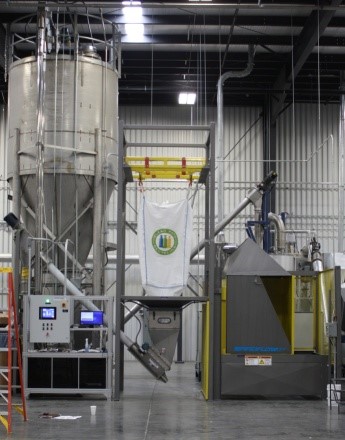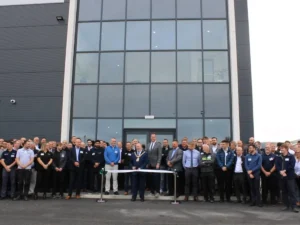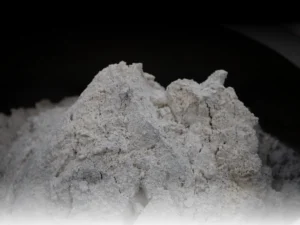Flexible screw conveyors (FSCs) earn their name. These machines can convey material in any direction from horizontal to steep elevation. They can be routed around fixed objects and from room to room providing maximum versatility. Often they used to feed filling machinery, convey product from a hopper to a process and provide controlled feeding. It can also provide dosing from bulk bags, feeding products from multiple inlets, loading silos or filling bulk bags.
A fantastic entry-level conveyor, flexible screw conveyors are the perfect option for small food processors. They offer a cost-effective, low maintenance, dust-free and low energy conveying solution. Cost is specifically based on the type of tubing and spiral, the length of conveyor and motor size. It is almost certainly the least expensive option compared to other mechanical conveying systems.
How do Flexible Screw Conveyors work?
Flexible screw conveyors can have multiple inlets and outlets and offer the added benefit of constantly remixing blends. A helical spiral or screw rotates within a sealed tube and the speed makes the product in the conveyor rotate with the screw. The tumbling effect provides a homogeneous mix of particles in the conveyor, which is essential when feeding pre-mixed ingredients and maintaining mixing integrity. Spiral speed is typically up to 1,150 RPM depending on the size of the conveyor and capacities are typically up to 29 ft³/min (0.82 m³/min). The conveying rate can of course vary and the performance of FSCs is closely tied to the material carried. Product flow characteristics, bulk density, and layout of the FSC all play their part.
What are the Benefits?
These conveyors readily convey thousands of materials and mixtures from fine powders to large pellets. Testing can quickly determine the suitability of a flexible screw conveyor for your application. Material degradation is less than other mechanical conveyors with moderate shear stress produced by the screw against the tube. Typically degradation is not an issue with most granular products like sugar, but material testing is recommended for fragile products.
In addition, flexible screw conveyors have the benefit of being able to transport hot and cold materials. Typical UHMWPE tubes with a steel spiral can handle material temperatures up to 180˚F (82˚C). For higher temperatures, up to 300˚F (149˚C), a steel tube is required. However moist materials, sludge, and slurries are not suitable.
Flexible screw conveyors require very little maintenance with wear typically occurring when conveying abrasive products or if the tube is excessively bent. They can also be easily cleaned with an operator simply running it in reverse to empty material into a receptacle. FSCs can be stripped down in a few minutes and usually have an optional quick release and hygienic fitting to aid clean down. The screw can be removed from the tube so smooth surfaces can be cleaned and visually inspected.
In summary, flexible screw conveyors require little maintenance, are cost-effectively installed, dust-free and can convey a vast variety of dry material, hot or cold. This makes them an ideal choice for companies looking to invest in a low-cost mechanical conveying system.
Do you have any more questions?
Spiroflow has been a global leader in the field of powder handling and dry bulk solids processing for more than 45 years. To learn more visit spiroflow.com, email sales@spiroflow.com or call +44 (0) 1200 422525 in the UK or (1) 704 246 0900 in the US.






